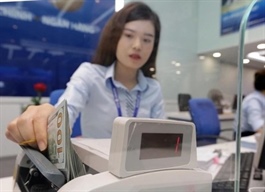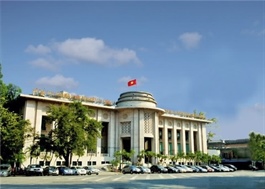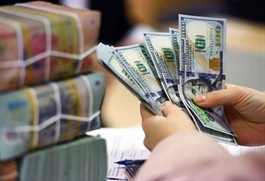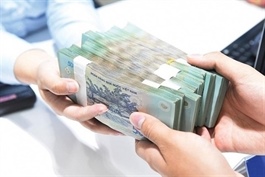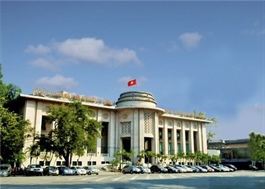VAT overhaul to boost agriculture prospects
VAT overhaul to boost agriculture prospects
Vietnam is set to revise its existing Law on Value-Added Tax with a reclassification of products in areas like agriculture and fisheries, with the hopes of making them more favourable in performance.

A draft VAT amendment law will be proposed to the National Assembly (NA) for comments in the seventh session taking place in May and June, before being able to be approved at the eighth working session scheduled to take place in October.
Last December, the National Assembly Standing Committee ratified a resolution on adjustment of the programme on development of laws and ordinances in 2024, in which the VAT law was included.
One of the highlights of the draft amendments is proposals for new VAT rates. Specifically, they shall limit the category of “exported services subject to 0 per cent VAT” to specifically cover three groups of services provided to foreign organisations and individuals: rental of vehicles for use outside Vietnam’s territory; international transportation; and aviation and maritime services provided directly for international transportation purposes.
Besides that, the draft shall reclassify fertiliser products, fishing vessels, and specialised machinery and equipment used for agricultural production to being subject to 5 per cent VAT instead of not being subject to VAT as currently.
Various obstructions
According to the Ministry of Finance (MoF), which drafts the amendments, since changes made in 2016, the implementation of the revised law has revealed numerous shortcomings affecting enterprises’ performance.
For example, all enterprises engaging in production and trade in goods used for agricultural and fishery production, such as fertiliser, specialised machinery, and fishing vessels, have been free from paying VAT.
“However, they are not allowed to declare and deduct it for their input goods and services, including activities involving investment and fixed assets purchase for their own performance,” stated an MoF report on the draft amendments submitted to the government last week.
“Instead, VAT payment is made for costs of products, leading to a rise in selling prices and a reduction in profits, meaning the items are less competitive than imported similar items.”
“Because they are not allowed to deduct it for input goods and services, enterprises do not want to expand investment, goods purchase, repair, and grade fixed assets to create high-quality products,” the MoF stated.
Associate Professor Nguyen Thi Thuy Duong, from the Institute for Banking and Finance under the National Economic University, commented that in the fertiliser production industry, Vietnam currently has to import a great deal volume of fertiliser from foreign markets where this item is subject to assorted VAT levels.
“When exporting fertiliser products into Vietnam, these exporters are refunded input VAT. Meanwhile, when imported into Vietnam, they are free from the tax, so foreign firms can lower selling prices, which have created unfair competition with items produced in Vietnam,” Duong analysed.
What is more, the state has lost an amount of revenue due to failure in collecting VAT from imported products, while import tariffs are either very low or reduced to zero, Duong said.
“This would mean local producers will continue facing difficulties. When fertiliser products are not subject to VAT, as a matter of fact, enterprises cannot deduct input VAT when selling them domestically, while the majority of input materials are subject to 10 per cent,” she continued.
As a result, enterprises have to increase production costs and suffer from a profit reduction, and they do not want to invest into renewing fixed assets, she explained.
“Additionally, enterprises also shift to exporting products because exportation can help them have VAT refunded thanks to a zero rate. This would lead to a reduction in fertiliser supply, meaning a rise in prices in the domestic market.”
Under the draft amendments to the law, when it comes to agricultural machinery and equipment, animal feed, and fishing vessels, at presents, these items are not subject to VAT.
However, this has made it difficult for producers in these sectors. They cannot declare and deduct VAT of input goods and services, including all activities about investing and purchasing fixed assets for production and business performance. And instead they have to increase costs and selling prices, meaning a reduction of profits. Finally, customers will have to buy products at high prices.
Meanwhile, according to the MoF, many types of machinery and equipment are used for many purposes in addition to agricultural production, such as water pumps, warming machinery, and diesel engine.
“This means it is difficult to determine which types of machines are subject to a 5 or 10 per cent VAT rate when they make correct declarations of the tax they have to pay. Moreover, tax and customs agencies also cannot control the usage purposes of the machines and equipment to impose a suitable rate,” the MoF stated.
Public post and telecommunications, internet services, and services that take care of zoos, public parks, and public lighting are currently not subject to VAT.
According to the MoF, many enterprises have been providing these services, but the fact that the businesses are not subject to VAT “is not suitable any longer because they cannot deduct it for input VAT and enjoy input a refund”.
A way out
According to the draft amendments to the law, the legislative body will revise the list of goods and services subject to VAT in a direction of reducing the number of such goods and services.
For instance, the MoF has been asked by the Ministry of Industry and Trade, the Vietnam Fertiliser Association, and domestic fertiliser producers to shift fertiliser products from not being subject to VAT to 5 per cent.
“Fertiliser should be subject to a 5 per cent VAT rate to support the industry. However, it is necessary to harmonise this rate with other types of taxes on fertiliser such as import and export taxes,” said Duong from the Institute for Banking and Finance. “The government also needs to control fertiliser export activities to prevent bad impacts on the domestic supplies. The export tariff for fertiliser needs to be maintained at a level of higher than 0 per cent.”
The MoF has also suggested that to help enterprises producing agricultural machinery and equipment, and fishing vessel out of difficulties and to help them achieve equal competition with imported similar items, “it is necessary for the NA to revise related regulations on these home-made products appropriately.”







